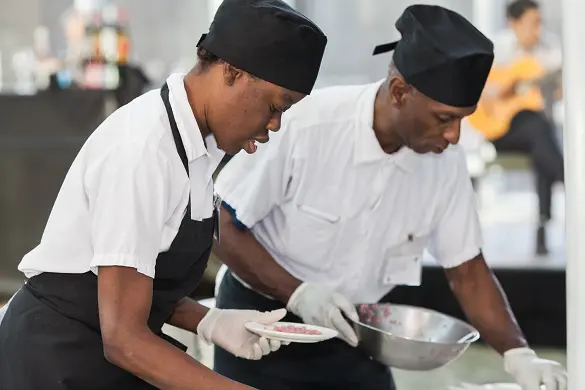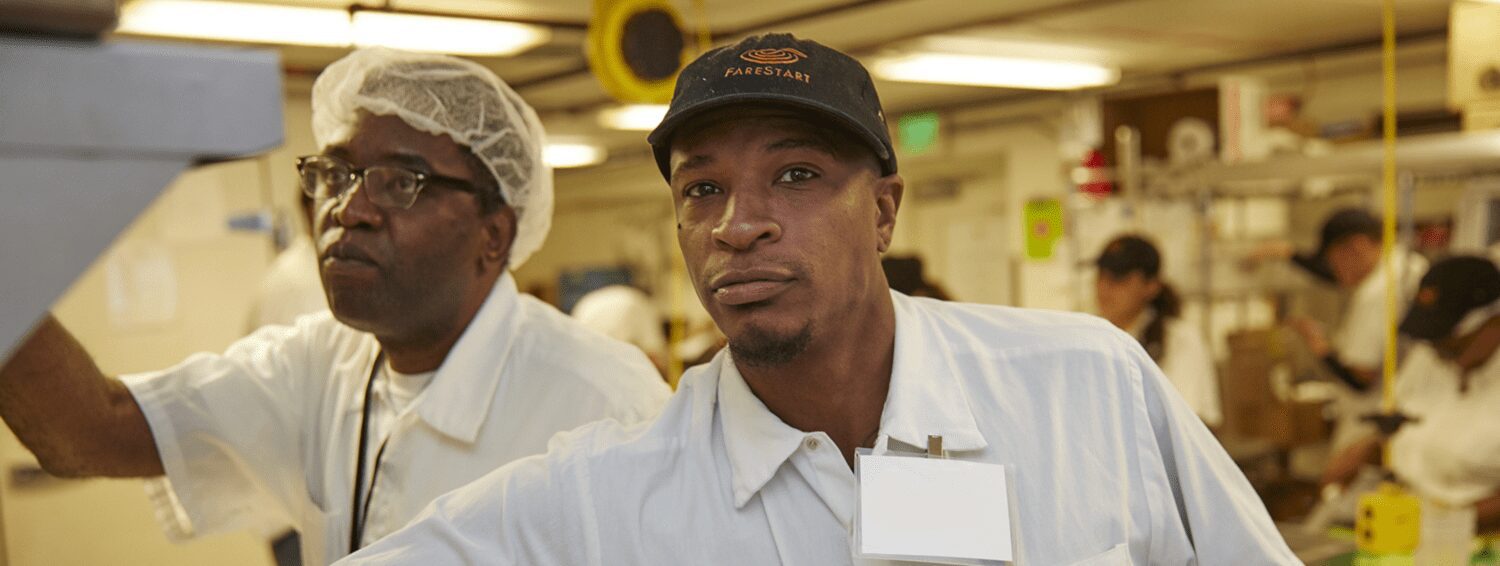$17 Million in New Markets Tax Credit Financing
FareStart Adult Culinary Academy Seattle, Washington
FareStart Adult Culinary Academy Community Development Project
Based in Seattle, Washington, FareStart is a community-based nonprofit organization that transforms lives by empowering homeless and disadvantaged men, women, and families to achieve self-sufficiency through life skills, job training and employment in the food service industry. The intensive training program combines hands-on food-service training with classroom instruction, individual case management and job placement services. This program prepares homeless and disadvantaged men and women for jobs in the restaurant and hospitality industry and helps them to keep those jobs. FareStart had purchased a 33,000-sq.-ft. building at 2004 Westlake Avenue in Seattle to expand their training, social service, and business capacity; however, they did not have the funding necessary to renovate and upgrade the facility to make it fully operational.


NMTCs and Historic Tax Credits (HTCs) were combined to provide below-market financing with equity-like terms to make this project feasible. Available on federal and state level, HTCs encourage the rehabilitation of historic buildings or developments located in historic districts. Conventional lenders had declined, with the addition of NMTCs the project was able to move forward.
CBO Financial’s subsidiary, Community Development Funding, was called upon to help and made a $17 million NMTC investment as a gap financing measure to FareStart to renovate and upgrade their facility, transforming it into a culinary vocational training academy and restaurant.
CBO’s financing efforts were nationally recognized as the 2008 “First Place Real Estate QLICI of the Year” in a competition sponsored by the Novogradac Community Development Foundation.
The new facility addressed all of the deficits of the prior current location. Kitchen and classroom space will be doubled, providing for quality and safe training areas and increase their business capacity. A family resource area will provide a safe, “child friendly” space for the use of students who are parents of minor children. The organization’s management and administrative staff will be located in the same building.
The new facility provided FareStart with the capacity to increase to 575 the number of people served each year and increase by 80% the revenue generated through the organization’s food service businesses. Self-generated revenues support the majority of FareStart’s business operations growth, and hungry children and families will consume 21 million nutritious meals, prepared and delivered by FareStart.
Measured two years after graduation, FareStart has a 90% success rate with keeping formerly homeless people self-sufficient and off the streets.
Over the past 19 years, FareStart has provided opportunities for nearly 5,000 people to transform their lives, while also serving over 4.5 million meals to disadvantaged men, women, and children.
